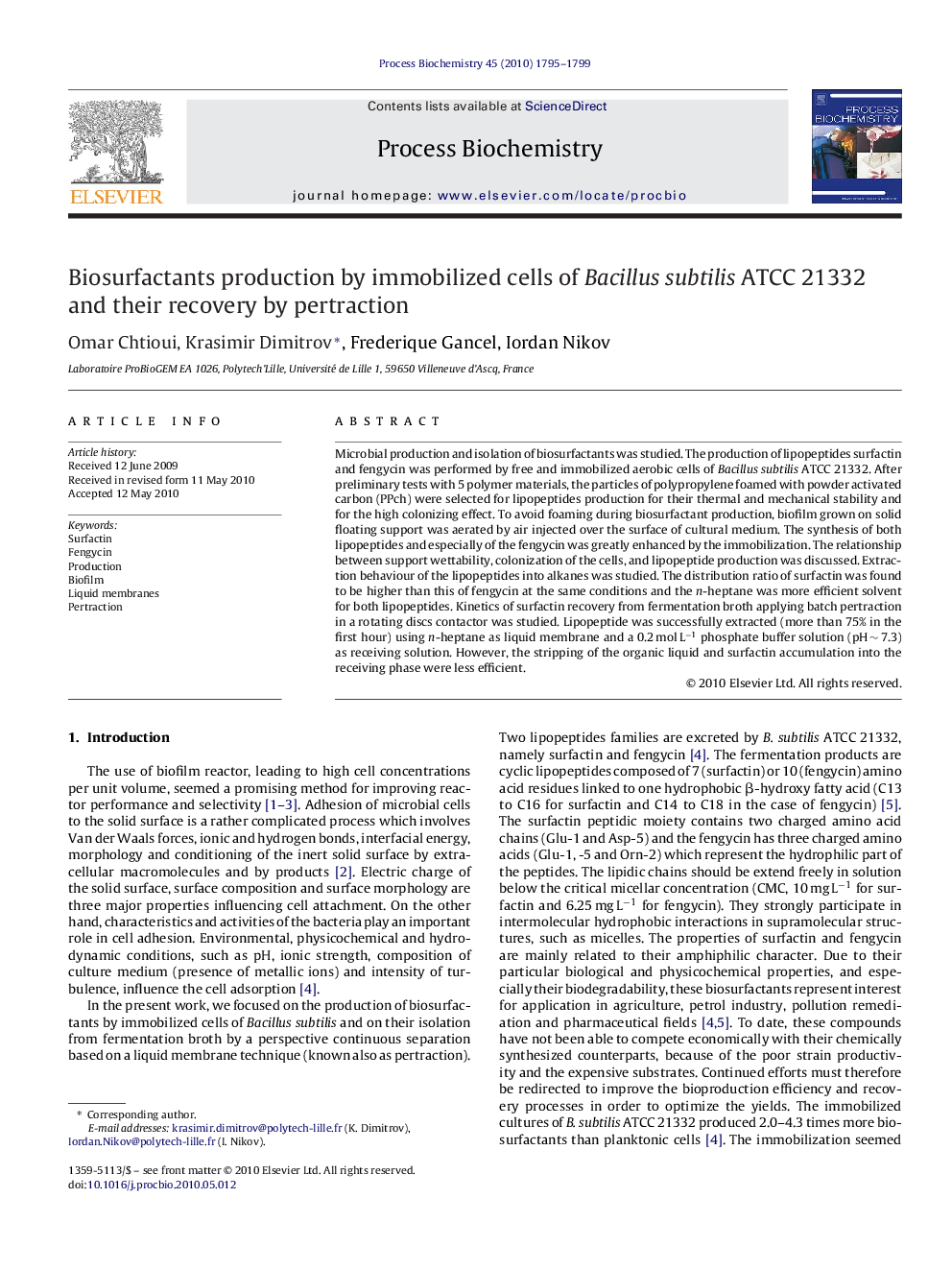| Article ID | Journal | Published Year | Pages | File Type |
|---|---|---|---|---|
| 35046 | Process Biochemistry | 2010 | 5 Pages |
Microbial production and isolation of biosurfactants was studied. The production of lipopeptides surfactin and fengycin was performed by free and immobilized aerobic cells of Bacillus subtilis ATCC 21332. After preliminary tests with 5 polymer materials, the particles of polypropylene foamed with powder activated carbon (PPch) were selected for lipopeptides production for their thermal and mechanical stability and for the high colonizing effect. To avoid foaming during biosurfactant production, biofilm grown on solid floating support was aerated by air injected over the surface of cultural medium. The synthesis of both lipopeptides and especially of the fengycin was greatly enhanced by the immobilization. The relationship between support wettability, colonization of the cells, and lipopeptide production was discussed. Extraction behaviour of the lipopeptides into alkanes was studied. The distribution ratio of surfactin was found to be higher than this of fengycin at the same conditions and the n-heptane was more efficient solvent for both lipopeptides. Kinetics of surfactin recovery from fermentation broth applying batch pertraction in a rotating discs contactor was studied. Lipopeptide was successfully extracted (more than 75% in the first hour) using n-heptane as liquid membrane and a 0.2 mol L−1 phosphate buffer solution (pH ∼ 7.3) as receiving solution. However, the stripping of the organic liquid and surfactin accumulation into the receiving phase were less efficient.
